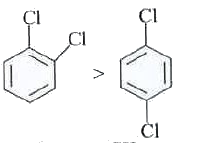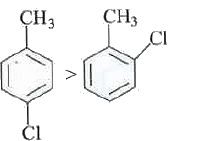Which is correct
An antibody combines with a specific antigen
An antibody combines with any antigen
All antibodies combine with all type of antigens
None of the above
The correct Answer is:A
Step-by-Step Solution:
1. Understanding Antigens and Antibodies:
- Antigens are foreign substances (like microbes or pathogens) that enter the body and trigger an immune response.
- Antibodies are proteins produced by B cells in response to antigens.
2. Analyzing the Options:
- Option A: "Antibody combines with the specific antigen."
- Option B: "Antibody combines with any antigen."
- Option C: "All antibodies combine with all types of antigen."
- Option D: "None of the above."
3. Evaluating Option A:
- Antibodies are produced specifically for the antigens that the immune system recognizes. This means that each antibody is tailored to bind to a specific antigen.
4. Evaluating Option B:
- This option is incorrect because antibodies do not combine with just any antigen; they are specific to certain antigens.
5. Evaluating Option C:
- This option is also incorrect as it suggests that all antibodies can bind to all antigens, which is not true. Each antibody has a unique structure that allows it to bind to a specific antigen.
6. Evaluating Option D:
- Since Option A is correct, Option D is incorrect.
7. Conclusion:
- The correct answer is Option A: "Antibody combines with the specific antigen."
- Antigens are foreign substances (like microbes or pathogens) that enter the body and trigger an immune response.
- Antibodies are proteins produced by B cells in response to antigens.
- Option A: "Antibody combines with the specific antigen."
- Option B: "Antibody combines with any antigen."
- Option C: "All antibodies combine with all types of antigen."
- Option D: "None of the above."
- Antibodies are produced specifically for the antigens that the immune system recognizes. This means that each antibody is tailored to bind to a specific antigen.
- This option is incorrect because antibodies do not combine with just any antigen; they are specific to certain antigens.
- This option is also incorrect as it suggests that all antibodies can bind to all antigens, which is not true. Each antibody has a unique structure that allows it to bind to a specific antigen.
- Since Option A is correct, Option D is incorrect.
- The correct answer is Option A: "Antibody combines with the specific antigen."
Topper's Solved these Questions
- HUMAN HEALTH AND DISEASEBOOK - DINESH PUBLICATION ENGLISHCHAPTER - HUMAN HEALTH AND DISEASEEXERCISE - CHECK YOUR GRASP
17 Videos
- HUMAN HEALTH AND DISEASEBOOK - DINESH PUBLICATION ENGLISHCHAPTER - HUMAN HEALTH AND DISEASEEXERCISE - CHECK YOUR GRASP
17 Videos
- HUMAN EVOLUTIONBOOK - DINESH PUBLICATION ENGLISHCHAPTER - HUMAN EVOLUTIONEXERCISE - Brain Teasers-VII
181 Videos
- HUMAN REPRODUCTIONBOOK - DINESH PUBLICATION ENGLISHCHAPTER - HUMAN REPRODUCTIONEXERCISE - MCQ
770 Videos
Similar Questions
Knowledge Check
Which are correct regarding boiling point?
A B
B C
C D
D
Which is not correct?
AUGG codes for tryptophanBUAA codes for lysineCCysteine is coded by UGU and UGCDTyrosine is coded by UAU and UAC
